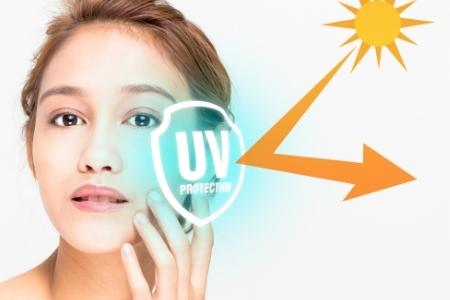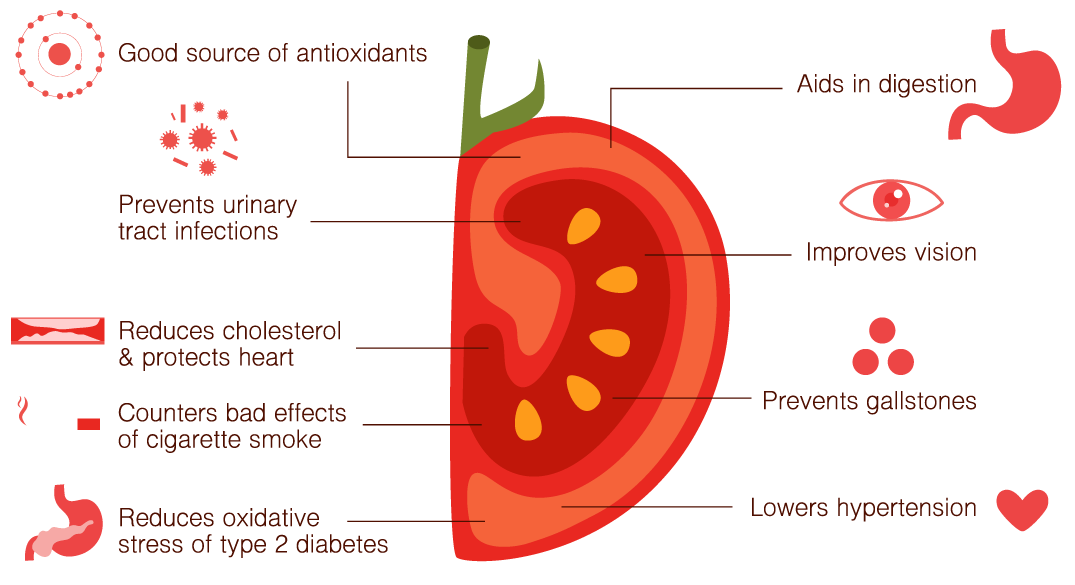Lycopene benefits for skin
Lycopene has gained significant attention in recent years as a potential game changer in skincare. This powerful antioxidant, primarily found in tomatoes and other red fruits, has been the focus of numerous studies exploring its benefits for skin health. With its impressive properties, lycpene has the potential to revolutionize the skincare industry.
Introduction to Lycopene
Lycopene is a naturally occurring pigment that belongs to the carotenoid family. It is responsible for giving certain fruits and vegetables their vibrant red color, such as tomatoes, watermelon, and pink grapefruit. As a potent antioxidant, lycopene helps plants protect themselves from damage caused by sunlight and other environmental factors.
In recent years, scientists have discovered that lycopene also offers numerous benefits when applied topically or ingested. Its antioxidant properties help neutralize harmful free radicals in the body, which are known to contribute to aging and various diseases. By counteracting oxidative stress, lycopene supports overall health and plays a vital role in promoting skin wellness.
One of the key advantages of lycopene in skincare is its ability to protect the skin from damage caused by UV radiation. Sun exposure can lead to premature aging, wrinkles, and skin cancer. Studies have shown that lycopene can help reduce the harmful effects of UV rays by inhibiting oxidative damage and inflammation in the skin.
Additionally, lycopene has been found to have anti-inflammatory properties, making it beneficial for individuals with sensitive or acne-prone skin. It helps calm redness, soothe irritation, and promote a more even complexion.

What is Lycopene?
Lycopene is a natural pigment and a member of the carotenoid family, responsible for giving certain fruits and vegetables their vibrant red color. It is predominantly found in tomatoes, but can also be found in other red fruits such as watermelon, pink grapefruit, and guava. Lycopene is a highly potent antioxidant, which means it helps protect cells from damage caused by harmful free radicals.
Unlike some other carotenoids, such as beta-carotene, lycopene does not convert to vitamin A in the body. However, its exceptional antioxidant properties make it valuable for promoting overall health and well-being.
Lycopene is a fat-soluble compound, meaning it is better absorbed by the body when consumed with a source of dietary fat. Cooking or processing tomatoes can actually increase the availability of lycopene, making it easier for the body to absorb.

The Many Facets of Lycopene for Skin Health
Lycopene as a Potent Antioxidant: Combating Free Radicals
As a powerful antioxidant, lycopene neutralizes harmful free radicals that can cause oxidative stress and cell damage. This damage manifests as wrinkles, fine lines, and other signs of aging on the skin. It can also lead to more serious skin conditions like skin cancer. By scavenging free radicals, lycopene preserves skin health and delays aging.

Lycopene's Role in Anti-Aging and Collagen Production
In addition to protecting the skin from free radicals, lycopene promotes collagen production. Collagen is a critical protein that provides structure and elasticity to the skin. As we age, our natural collagen production decreases, leading to sagging skin and wrinkles. Lycopene's stimulation of collagen synthesis helps maintain skin firmness and elasticity, contributing to a youthful appearance.

The Sun-Protection Capabilities of Lycopene
Lycopene, a natural pigment found in certain fruits and vegetables, has garnered attention for its potential sun-protection capabilities. While it is not a substitute for sunscreen, lycopene's antioxidant properties make it a valuable addition to sun care routines. Here's a closer look at how lycopene can contribute to protecting the skin from the harmful effects of the sun:
-
UV Radiation Protection: Lycopene has been found to absorb and neutralize harmful ultraviolet (UV) radiation from the sun. UV radiation is a major cause of skin damage, including sunburn, premature aging, and an increased risk of skin cancer. Lycopene's ability to absorb UV rays helps reduce the penetration of these damaging rays into the skin.
-
Anti-Inflammatory Effects: Sun exposure can trigger inflammation in the skin. Lycopene possesses anti-inflammatory properties that can help calm and soothe the skin, minimizing redness and irritation caused by UV radiation. By reducing inflammation, lycopene supports the skin's natural healing process.
-
Antioxidant Defense: Lycopene is a powerful antioxidant that helps neutralize free radicals generated by UV exposure. Free radicals are unstable molecules that can cause oxidative stress, leading to cellular damage and premature aging. Lycopene's antioxidant activity helps protect the skin cells from this damage, promoting a healthier complexion.
-
DNA Protection: UV radiation can cause DNA damage in skin cells, increasing the risk of mutations and potentially leading to skin cancer. Lycopene's ability to scavenge free radicals and reduce oxidative stress can help safeguard the integrity of DNA, reducing the risk of cellular mutations.

Health Benefits of Lycopene Beyond Skincare
Lycopene, a potent antioxidant predominantly found in tomatoes and other red fruits, has gained recognition for its remarkable health benefits that extend far beyond its impact on skincare.
Lycopene's Contribution to Heart Health
Not limited to skin benefits, lycopene also contributes to heart health. Its antioxidant activity reduces oxidative stress, a key player in heart disease development. By lowering oxidative stress and inflammation, lycopene supports healthy heart function and potentially reduces the risk of heart disease.
The Anti-Inflammatory Power of Lycopene
In addition to its antioxidant properties, lycopene exhibits anti-inflammatory properties. It inhibits the production of inflammatory cytokines, compounds that promote inflammation. This makes lycopene a potential ally in managing chronic inflammatory diseases, including arthritis and inflammatory skin conditions like eczema and psoriasis.
Dietary Lycopene: Aiding Overall Health
Beyond its impact on specific areas such as skincare and sun protection, dietary lycopene offers a range of health benefits that can contribute to overall well-being. By incorporating lycopene-rich foods into your diet, you can harness its potential to support various aspects of your health. Here's a closer look at how dietary lycopene can aid overall health:
-
Antioxidant Power: Lycopene is a potent antioxidant that helps combat the harmful effects of free radicals in the body. Free radicals can cause cellular damage and contribute to various chronic diseases, including cardiovascular disease, cancer, and neurodegenerative disorders. By neutralizing free radicals, lycopene helps protect cells and tissues from oxidative stress, promoting overall health.
-
Cardiovascular Health: Several studies have shown that lycopene intake is associated with a reduced risk of cardiovascular disease. Lycopene's antioxidant properties help prevent the oxidation of LDL cholesterol, reduce inflammation, and improve blood vessel function. These factors contribute to a healthier cardiovascular system and a decreased risk of heart attacks and strokes.
-
Cancer Prevention: Lycopene's potential in reducing the risk of certain cancers, particularly prostate, lung, and stomach cancers, has been extensively studied. Its antioxidant and anti-inflammatory properties, along with its ability to inhibit cancer cell growth and promote cell cycle arrest, make it a promising component in cancer prevention. However, more research is needed to fully understand its mechanisms and optimal dosage for different types of cancer.
-
Eye Health: Lycopene has been associated with a reduced risk of age-related macular degeneration (AMD) and cataracts, two common eye conditions that can lead to vision impairment. Its antioxidant properties help protect the retina and lens of the eye from oxidative damage, supporting long-term eye health.
-
Bone Health: Some studies suggest that lycopene may play a role in promoting bone health. It is thought to help reduce bone resorption, maintain bone density, and potentially prevent osteoporosis. However, further research is necessary to establish a definitive link between lycopene and bone health.

Benefits of Lycopene for Skincare
Lycopene's remarkable properties, such as its ability to protect against UV damage, reduce inflammation, stimulate collagen production, and promote overall skin rejuvenation, make it a sought-after component in skincare products.
Enhancing Skin Firmness with Lycopene
Due to its antioxidant properties and ability to stimulate collagen production, lycopene plays a vital role in maintaining skin firmness. By combating the destructive free radicals and boosting collagen, lycopene aids in preserving the skin's structural integrity. Regular use of lycopene-infused skincare products can result in tighter, firmer skin.
Improving Skin Tone and Elasticity with Lycopene
Another fantastic benefit of lycopene for skin health involves improving skin tone and elasticity. Lycopene helps balance skin coloration, reducing hyperpigmentation and providing a more uniform skin tone. Furthermore, by boosting collagen production, lycopene improves skin elasticity, thereby reducing sagging and promoting youthful-looking skin.
Incorporating Lycopene into Your Skincare Routine
Adding lycopene to your skincare routine can be as simple as including more lycopene-rich foods in your diet. Additionally, several skincare products such as creams, serums, and sunscreens contain lycopene. When selecting such products, look for those with natural ingredients and ensure lycopene is listed as one of the main components. As always, conduct a patch test to determine skin compatibility with any new skincare product.

Conclusion
Lycopene stands out as a remarkable component that can help unlock a radiant complexion. By incorporating lycopene-rich foods into your diet and using quality skincare products infused with this potent antioxidant, you will be one step closer to achieving glowing, healthy skin. Embrace the power of lycopene today for a more youthful and vibrant appearance.
References
- Mathews-Roth, M.M., Pathak, M.A., Fitzpatrick, T.B., Harber, L.H., Kass, E.H. (1977) Beta carotene therapy for erythropoietic protoporphyria and other photosensitivity diseases Arch. Dermatol. vol. 113, pages 1229-1232
- Di Mascio and co-workers (1989) Lycopene as the most efficient biological carotenoid singlet oxygen quencher Arch. Biochem Biophys., vol. 274, pages 532-538
- Tinkler, J.H., Böhm, F., Schalch, W., Truscott, T.G. (1994) Dietary carotenoids protect human cells from damage J. Photochem. Photobiol. B:Biol. vol. 26, pages 283-285
- Gollnick, H.P.M., Hopfenmüller, W., Hemmes, C., Chun, S.C. et al. (1996) Systematic beta carotene plus topical UV sunscreen are an optimal protection against harmful effects of natural UV-sunlight: results of the Berlin-Eilath study Eur. J. Dermatol. vol. 6, pages 200-205
- T G Truscott, F Boehm and co-workers (2001) Dietary uptake of lycopene protects human cells from singlet oxygen and nitrogen dioxide- ROS components from cigarette smoke J. Photochem. Photobiol, ‘B’ (Biol.), vol. 64, pages 176 -178
- E A Offord and co-workers (2002) Photoprotection potential of lycopene, beta-carotene, vitamin E, vitamin C and carnosic Acid Free Radic. Biol, Med., vol. 32, pages 1293-1303
- Darvin, M., Patzelt, A., Gehse, S., Schanzer, S. et al. (2008) Cutaneous concentration of lycopene correlates significantly with the roughness of the skin Eur. J. Pharmaceut. Biopharmaceut vol. 69, pages 943-947
- L E Rhodes and co-workers (2011) Tomato paste rich in lycopene protects against cutaneous photodamage in humans in vivo British Journal of Dermatology, vol. 164, pages 154-162
- Rizwan, M., Rodriguez-Blanco, I., Harbottle, A., Birch-Machin, M.A. et al. (2011) Tomato paste rich in lycopene protects against cutaneous photodamage in humans in vivo: a randomized controlled trial Br. J. Dermatol vol. 164, pages 154-162
Send Inquiry
Related Industry Knowledge
- what is blue spirulina powder?
- NMN Powder: A Must-Have for Your Wellness Routine
- Lactoferrin: What It Is and Why It Matters for Your Health
- Versatile Uses of Pure Capsaicin Powder and Extract
- Best Glutamine Powder Health Benefits
- Effects of Creatine Tablets in Different Forms
- black carrot powder benefits for skin
- Creatine vs CaHMB: The ultimate showdown for muscle gain, who has the advantage?
- Does chaga powder help brain function?
- Best time to take creatine


